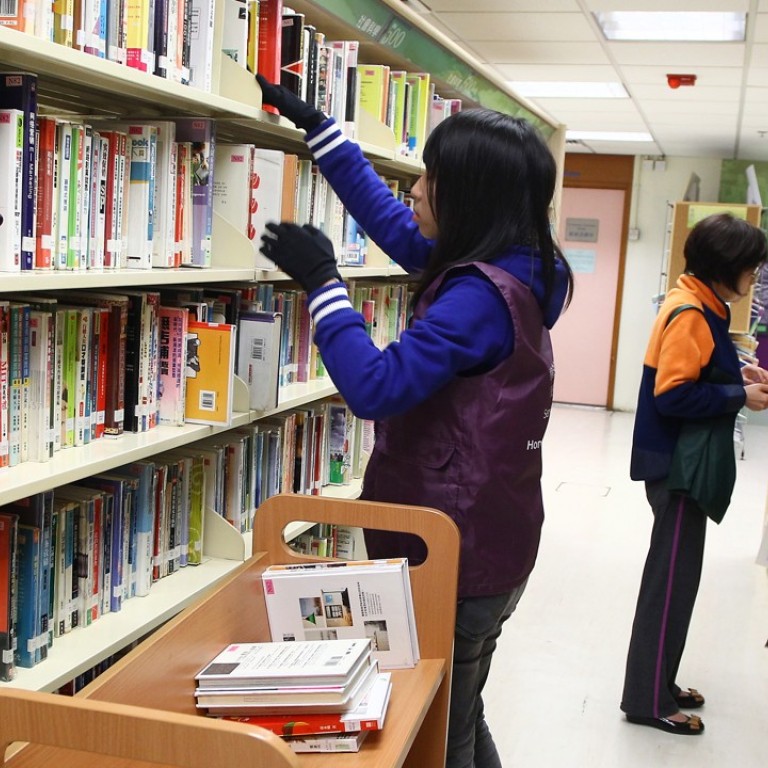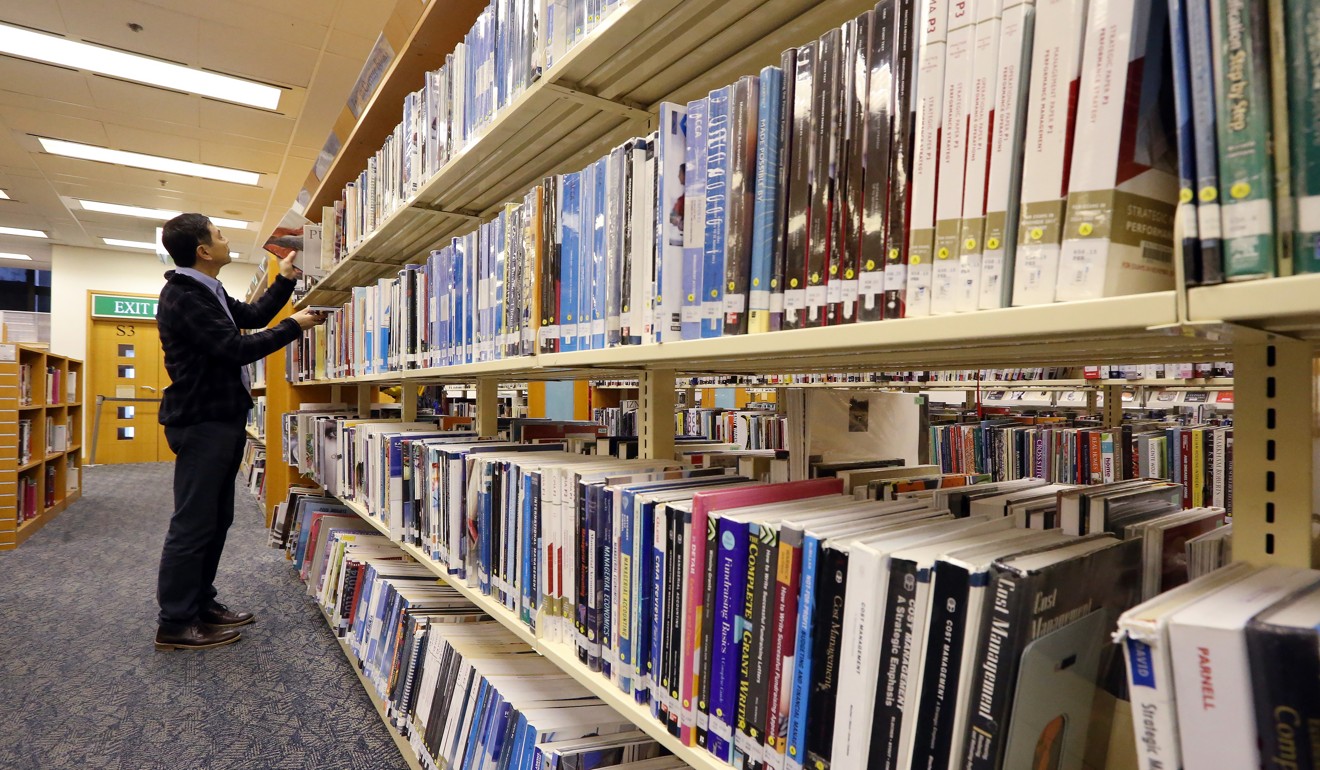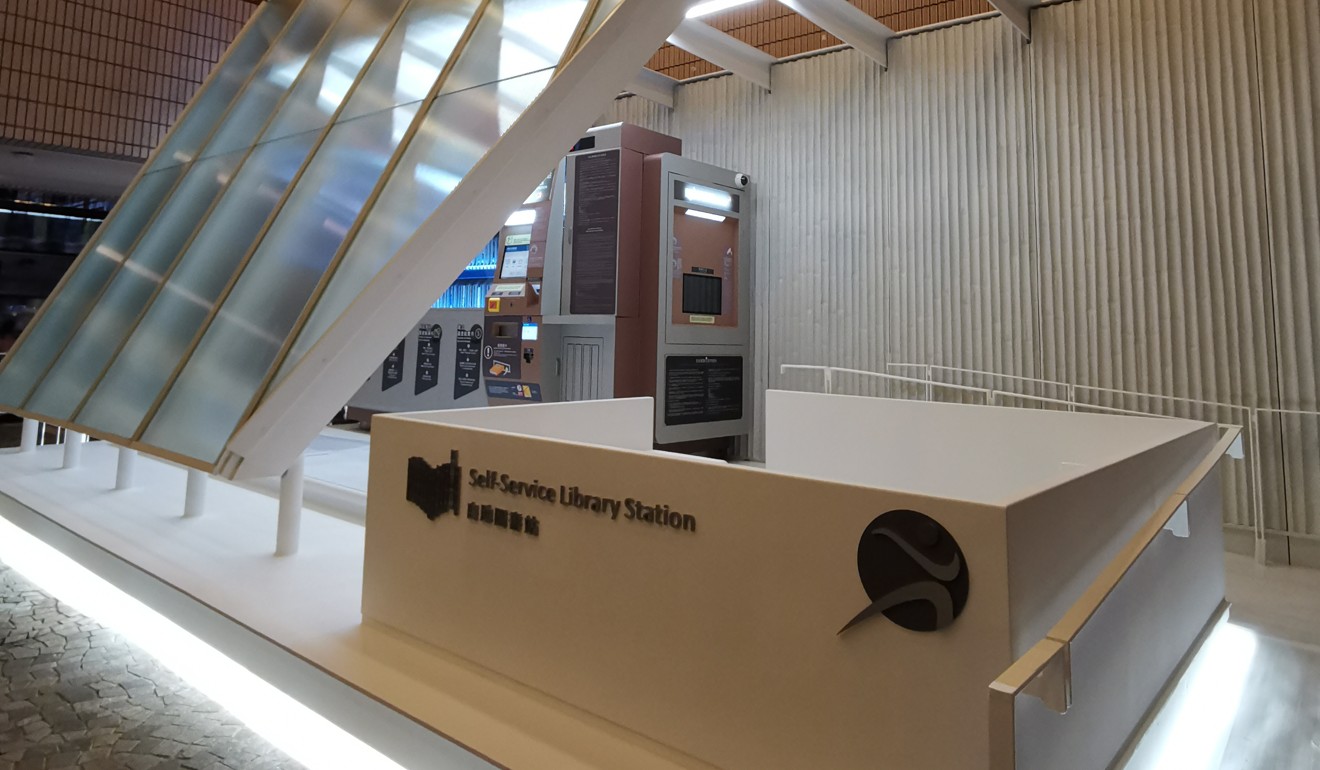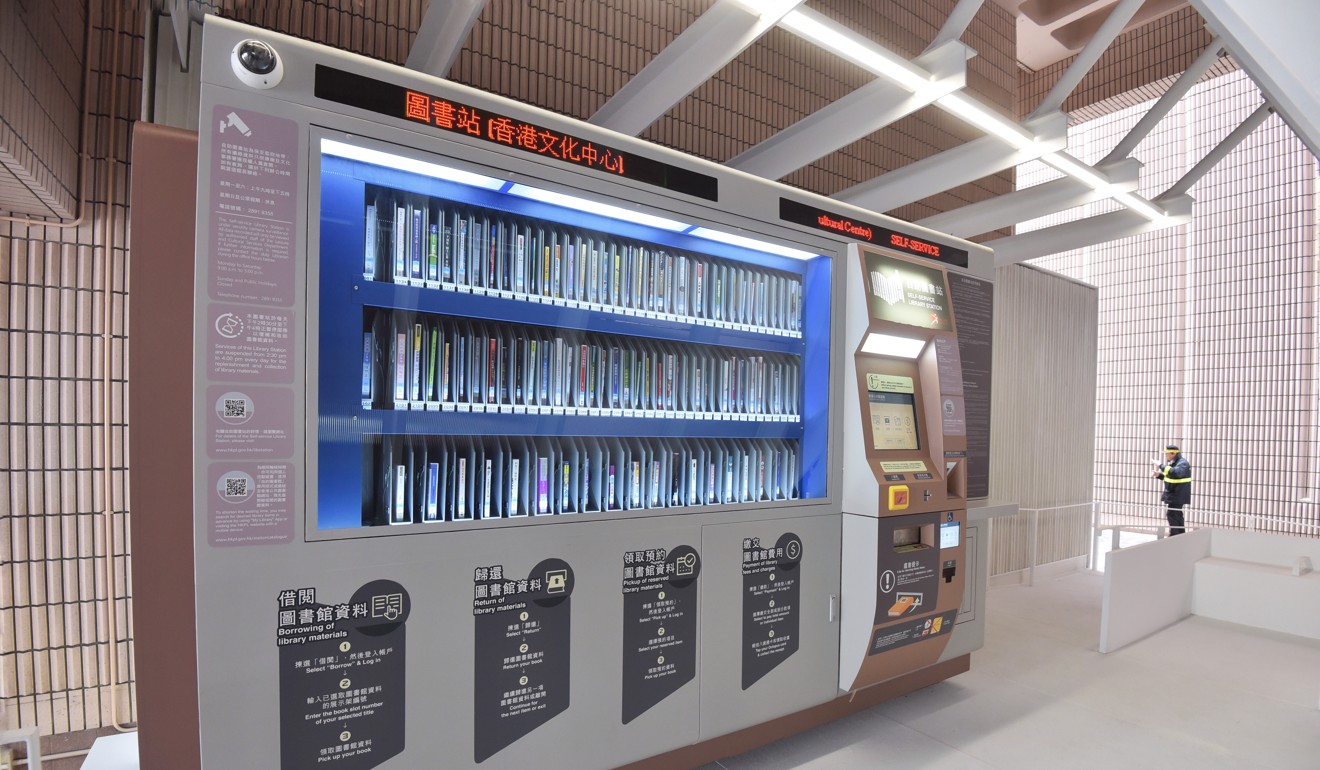
RFID technology could be next chapter in Hong Kong’s public libraries and help promote citywide reading culture, says LCSD
- Government looking to revamp computer systems supporting city’s 70 public and 12 mobile libraries, which reach the end of their serviceable life by 2021
- Technology would allow users to take out books instantly by tapping their mobile devices
Borrowing books could become as simple as tapping your phone under a plan to upgrade Hong Kong’s libraries with more user-friendly systems in the hope of promoting a citywide reading culture.
Unmanned mini-libraries and longer opening hours could also be possible with new, high-tech self-service kiosks, according to a paper submitted to the Legislative Council by the Leisure and Cultural Services Department (LCSD) on Thursday.
The government has been looking to revamp two computer systems that support Hong Kong’s 70 public and 12 mobile libraries as they will reach the end of their serviceable life by 2021.
Under the proposal, equipment such as check-out terminals and book drops at all libraries would be fitted with radio frequency identification (RFID) – the same technology that allows a tap and go system for wireless payment with credit cards.

The technology would also allow users to check out items instantly by tapping their mobile devices, the paper said.
Implementation of RFID technology could start from late 2021 at individual branches while it was expected to be fully rolled out by 2024, according to the LCSD.
In Singapore, the National Library Board launched a smartphone app in 2014 that allowed users to borrow books by scanning the barcode with their phone camera. It also allowed them to check due dates and the availability of titles.
Six libraries across the city have already been using RFID-enabled terminals under a pilot scheme launched in 2012.
The machines can detect and process up to three books placed on the terminal at the same time.
Other features include installing smart lockers or dispensers so users can pick up reserved items without queuing up for them at counters.

Lawmakers will discuss the plan next Wednesday, while the government said it planned to seek funding approval from the Finance Committee in the first quarter of next year to develop the system.
According to the paper, implementing the system will cost at least HK$877.3 million and require an annual recurrent expenditure of HK$121.3 million from 2025-26 onwards.

However, the government also pointed out the system would bring annual savings of HK$144.1 million from 2025-26 onwards, as it would cut costs in hiring contract staff and system maintenance.
Costs could also be saved with unstaffed mini-libraries and pop-up libraries instead of setting up traditional small libraries, it said.
The bureau added that the adoption of RFID-enabled multi-functional self-service kiosks “will enable Hong Kong Public Libraries to explore the extension of [opening] hours in a more cost-effective way”.
Major libraries are open until 8pm on weekdays, while the Central Library is open until 9pm.
Separately, the city recently launched the second of three 24-hour self-service library stations in Tsim Sha Tsui on Thursday.
The station stores about 300 Chinese and English books and operates like a vending machine, allowing users to borrow and return books, as well as pick up reserved materials and pay library fees.

